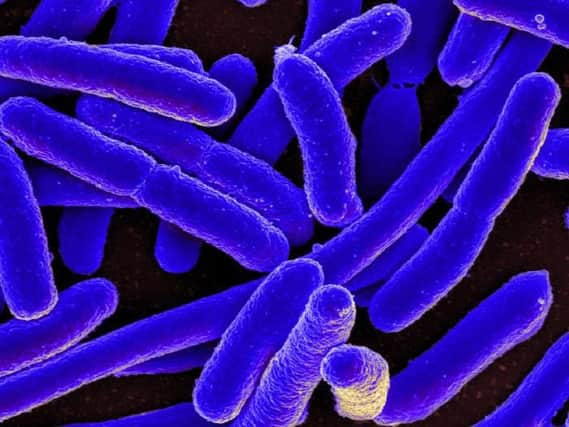Official report rules that blue cheese did cause e.Coli outbreak


The incident report, published today by Health Protection Scotland, said that "extensive investigations" had concluded that the bug had been able to enter the food chain during the production process at Errington Cheeses.
The company refuted the claims and insisted that "more detailed investigations into the cause of the outbreak are needed". The outbreak occurred last summer.
Advertisement
Hide AdAdvertisement
Hide AdThe issue has been the subject of a long running legal battle after the cheese and all other products made by the Lanark-based artisan cheesemaker were taken off the market and subsequently destroyed by South Lanarkshire Council last year. It was told earlier this month that it could continue to produce its Lanark Blue cheese, following a new testing regime that requires the firm to test its raw milk five times a day for pathogens.
Errington has claimed that independent testing has proved that its cheeses did not have pathogenic E.coli (known as Shiga toxin-producing Escherichia coli or STEC) present. A court in Lanark will next month test the evidence against the company, run by Humphrey Errington. He has said that if it rules in favour of the cheese manufacturer, he will seek compensation.
Today's report said: "Potentially pathogenic E. coli were able to enter and survive the cheese production process at the food business. Positive results were obtained for cheese produced over a period of four months, indicating a systematic potential for STEC to enter the process and contaminate final products."
It added: “Extensive investigations concluded that the source of the outbreak was the consumption of Dunsyre Blue. This conclusion was based on evidence from epidemiological and food chain investigations and supported by microbiological evidence and deficiencies identified in the procedures for the monitoring and control of STEC at the food business."
A statement from Errington, which has previously claimed that the authorities are attempting to curb production of raw milk cheeses north of the border, said that it still did not not believe that the report showed that any evidence linked its cheeses specifically to the outbreak.
It said: "The report confirms our fears that blue cheese was the only food stuff considered from an early stage in the investigation. Salad was also mentioned but there is no evidence given of any investigation of salads.
"We appreciate that Food Standards Scotland has a difficult role to play and must give priority to protecting the public and we accept that recalling the two initial batches was appropriate under the precautionary principle. However, we believe that once samples of these two batches of Dunsyre Blue tested negative for Ecoli 0157, the Incident Management Team should have looked at other food stuffs and potential sources of transmission."
It added: "We remain committed to producing raw milk cheese following best practice, based on scientific evidence and following regulatory guidance, as we have done for over thirty years."
Advertisement
Hide AdAdvertisement
Hide AdGeoff Ogle, chief executive of Food Standards Scotland, said: “Food Standards Scotland is satisfied that the evidence and conclusions presented in this report fully support and justify the decisions that we took to protect consumers. All of our decisions and actions were taken with the sole aim of protecting public health.
"This report should allay any concerns with regards to our decisions and assure others that our actions were evidence based. That will always be the case.”
Food writer Joanna Blythmann launched a crowdfunding campaign on JustGiving to pay for Errington Cheese’s legal costs in a bid to protect artisan food producers north of the border, raising more than £34,000.
Humhrey Errington was not immediately available for comment.